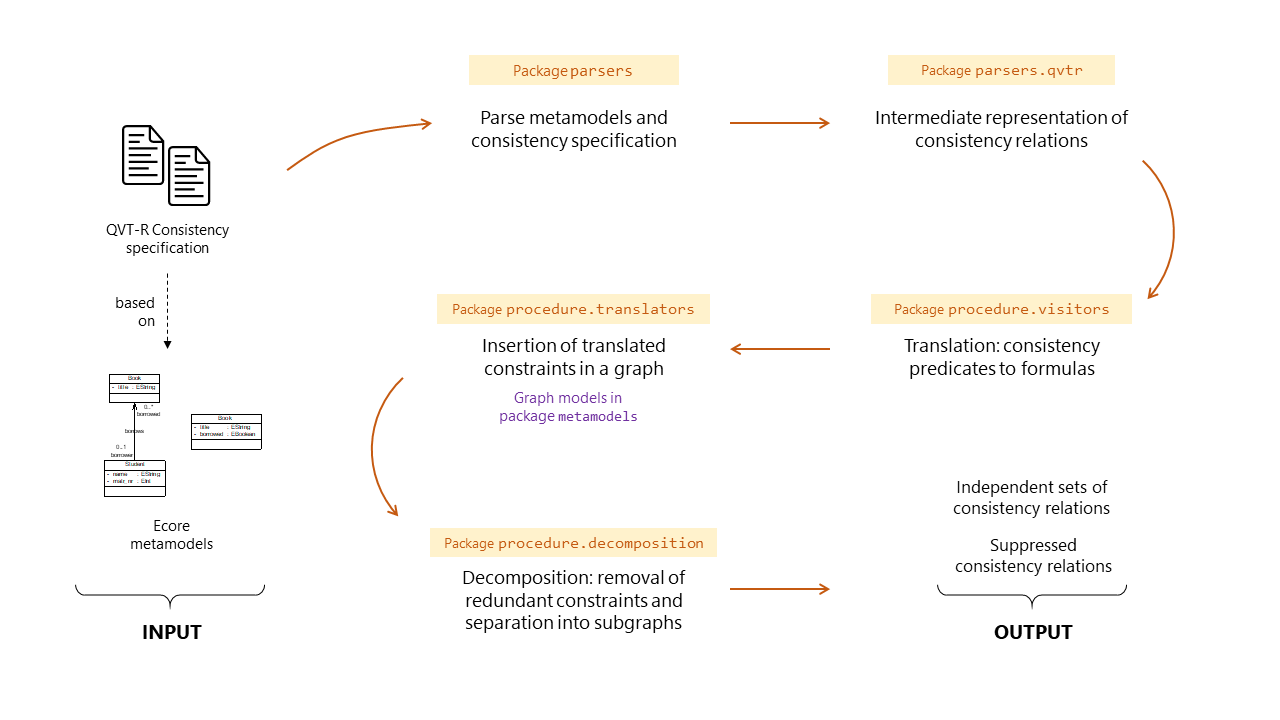This repository features an implementation of the decomposition procedure, an optimisation technique for multi-model consistency preservation. Simply explained, it transforms an unique consistency specification between various models into a set of independent, smaller consistency relations.
JDK >= 1.8
Maven >= 3.6.1
mvn clean installSee Notes on installation for further details.
mvn verify
# Code coverage (report in ./target/site/clover/index.html)
mvn clean clover:setup verify clover:aggregate clover:clover
An important task when maintaining several metamodels is to check that they are consistent with each other. Inconsistent metamodels can produce unexpected behaviors in software. A consistency specification can be expressed as a set of consistency relations between metamodels.
Given a consistency network, the goal of my thesis is to develop a procedure to find out if this network can be simplified. Here, “simplify” means:
- Are there unnecessary relations that can be replaced by a combination of other relations?
- Is the network made of independent parts (which can then be maintained separately)?
This procedure is called “decomposition procedure”.
This implementation is a prototype of the decomposition procedure. The algorithm takes metamodels (Ecore files) and a consistency specification (QVT-R files) as input.
In essence, the steps of the algorithm are:
- Parse QVT-R files and Ecore metamodels to generate an intermediate representation of the consistency specification.
- Translate (OCL) consistency predicates in QVTRelations into logical formulas and embed them in a graph.
- Solve by using the graph to find candidate paths (≡ combinations of constraints to replace another constraint) and the Z3 solver to check the validity of these paths.
- Ecore, the core metamodel of the Eclipse Modeling Framework
- QVTd, an implementation of the QVT-R transformation language
- Z3, a SMT solver
- jGraphT, a graph theory library
- Aurélien Pepin – KIT, Ensimag
- An introduction to multi-model consistency preservation
This prototype relies on many external JARs, i.e. dependencies that are not available in Maven Public Repositories.
An in-project repository for custom dependencies (repo) has been set up in src/main/resources.
Executing mvn clean install is enough to resolve dependencies from public and custom repositories.
This is currently the best approach to distribute local dependencies with their source.
The only disadvantage is that these non-published dependencies will not be solved if this project is itself included into another project. More details and solutions on this approach can be found here.
